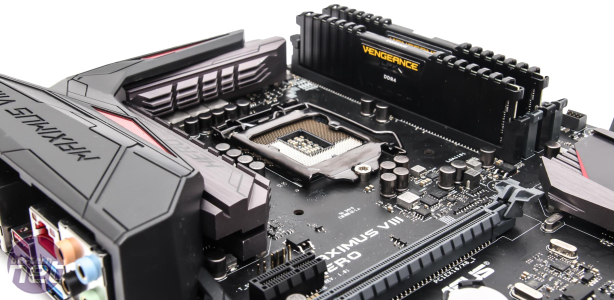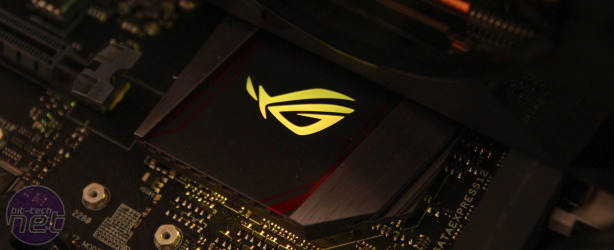
Performance Analysis
We load the default XMP profile for stock speed tests on all Z170 boards, but Asus also has some fairly aggressive ramping-up in place with the Hero as it posted some of the fastest stock speed results we've seen. Only in Terragen was it slower, but only by four seconds compared to the Z170-Deluxe, and it still managed a fairly low load power consumption of 125W - 23W less than the Z170-Deluxe.It was a similar result in our game tests too - Alien: Isolation rarely shows any difference but it was quicker in Unigine Valley and 3DMark Firestrike. Once overclocked to 4.8GHz, it was a similar story and it even came top in Terragen 3 as well, with a hefty lead over the MSI Z170A Gaming M5, which could only reach 4.6GHz. Despite one of the highest overclocks on test, the low vcore required saw the Hero only need 183W under load, although the Gene was even more power frugal.
Click to enlarge
The storage results were right on the money, making the most of our M.2 SSD with a read speed of 1,360MB/sec, and also the second fastest SATA 6Gbps read speed on test too. As usual, you should avoid the ASMedia SATA ports with modern SSDs as the best we saw here was 401MB/sec - a good 100MB/sec short of what decent SATA SSDs are capable of these days.
Click to enlarge
Audio performance was considerably better than bog-standard onboard audio, which typically hits around 90dBA. However, MSI has also upped its game here with a result of 101dBA in the Dynamic Range test - just 4dBA behind the Hero, which managed similar results to the two other Asus boards we've tested so far.
Conclusion
The Hero is a very well-rounded motherboard. It sports excellent overclocking potential, plenty of features both software and hardware-based plus it offers good performance in terms of audio and stock speeds. The addition of multi-colour lighting control is the icing on the cake, although we'd like to see Asus go further here and allow enthusiasts to truly colour-match their motherboard to the rest of their system, instead of just one heatsink.The lack of an additional M.2 port isn't a dealbreaker, although with the likes of Samsung's SM951 dropping in price all the time (the monstrous 515GB, 2,000MB/sec model only costs around £200 now), the more the merrier here really. You can, of course, use a PCI-E to M.2 adaptor if you end up needing two slots in the future, though. Apart from this, Asus makes an excellent case to choose the Hero if you've got £170 to spare for a Z170 motherboard, although there are cheaper, less well-equipped options waiting in the wings that you might want to check out first.

-
Speed42 / 45
-
Features25 / 30
-
Value21 / 25


MSI MPG Velox 100R Chassis Review
October 14 2021 | 15:04










Want to comment? Please log in.